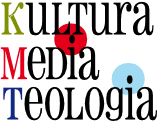
Uniwersytet Kardynała Stefana Wyszyńskiego
w Warszawie
ul. Dewajtis 5
01-815 Warszawa
kmt.uksw.edu.pl
kmt.uksw@gmail.com
ISSN 2081-8971
DOI 10.21697/kmt
Strona archiwalna
Na tej stronie znajdują się numery archiwalne kwartalnika od 1 (2010) do 53 (2023). Począwszy od numeru 54 kwartalnik znajduje się pod tym adresem.
Ewa Szczecińska-Musielak
Ethnicity in Contemporary World (an outline to subject matter)
Cite: Ewa Szczecińska-Musielak, Przejawy etniczności we współczesnym świecie. Zarys problematyki, "Kultura - Media - Teologia", 2014( 19) nr 4, s. 78-92.
It seems that for some time, ethnicity – ethnic group or ethnic identity – was treated in mainstream sociological discourse like an old item, something passé, which didn’t fit modern world. However, ethnic identity and ethnic groups still exist and play important role in social relations – ethnic identity defines boundary between individuals and groups, between “us” and “other”, “stranger”. As a matter of fact, ethnic conflicts haven’t disappeared. Migration itself seems to create new ethnic boundaries and local conflicts. On the other hand, ethnicity, it’s social and cultural forms of affirmation, has been changed. It appears in different forms and in different social and political situations. Ethnicity doesn’t have to be opposite to modernity. In fact it may be an element of modern cultural identity or modern life style. The fact, that ethnicity is still “being used” by many people in different situations means, that ethnicity is socially useful and necessary. For that reason, ethnicity is difficult to define – it embraces ethnic groups, ethnic identity, or political movements.
About authors
dr Ewa Szczecińska-Musielak
ORCID: (nieznany)
Issues
- KMT53: Literature - Media - Language
- KMT52: In the Field of Journalism
- KMT51: Liturgy in the virtual world
- KMT50: In the field of theology, communication and media culture
- KMT49: Communication and Media
- KMT48: Contemporary paradigms of social communication
- KMT47: We celebrate our 10th anniversary
- KMT46: In the field of politics, communication and media
- KMT45: Wisdom and communication in the present day
- KMT44: Search for good, truth and beauty
- KMT43: Indentity contexts
- KMT42: Cultural Identity
- KMT41: Madia in a pandemic
- KMT40: Communication and education
- KMT39: Communication in media, culture and theology
- KMT38: Forms of Communication
- KMT37: Image in media
- KMT36: Values on the Net
- KMT35: Happiness - concepts and visualizations
- KMT34: Happiness - concepts and symbols
- KMT33: Culture and media: transformations
- KMT32: Images and simulacra
- KMT31: Escaping Sacrum
- KMT30: Public relations in non-profit institutions
- KMT29: The hate and trolling on the Internet
- KMT28: The Media, Rituals and Lifestyle
- KMT27: Interdisciplinary discourses
- KMT26: The Absolute (not)present
- KMT25: Hating and trolling on the Internet
- KMT24: Socio-cultural communication: between dialogue and social engineering
- KMT23: Monastic Spirituality
- KMT22: The Faces of the Cinema
- KMT21: Media, Relationships, Communication
- KMT20: Theology of Mass Media
- KMT19: Edith Stein – Saint and Feminist?
- KMT18: Advertising, marketing and law
- KMT17: The Truth of time, the Truth of the Screen
- KMT16: Culture and communication
- KMT15: The media and education
- KMT14: Interdisciplinary discourses
- KMT13: Manipulation in the media
- KMT12: Communications at the Council
- KMT11: Media and the sacrum
- KMT10: Religion and media
- KMT9: Media artifacts
- KMT8: Cultural spaces
- KMT7: Identity and its foundations
- KMT6: Media, culture, money and...
- KMT5: Truth in the media?
- KMT4: Supermarket of the culture
- KMT3: Media masquerade
- KMT2: Rev. prof. Antoni Lewek (1940-2010) - life and work
- KMT1: Thresholds for (post)modernity
Links
- Uniwersytet Kardynała Stefana Wyszyńskiego w Warszawie
- Wydział Teologiczny UKSW
- Instytut Wiedzy o Kulturze
- Instytut Edukacji Medialnej i Dziennikarstwa
Other info
We use cookies for traffic measurment. Privacy agreement (in polish).